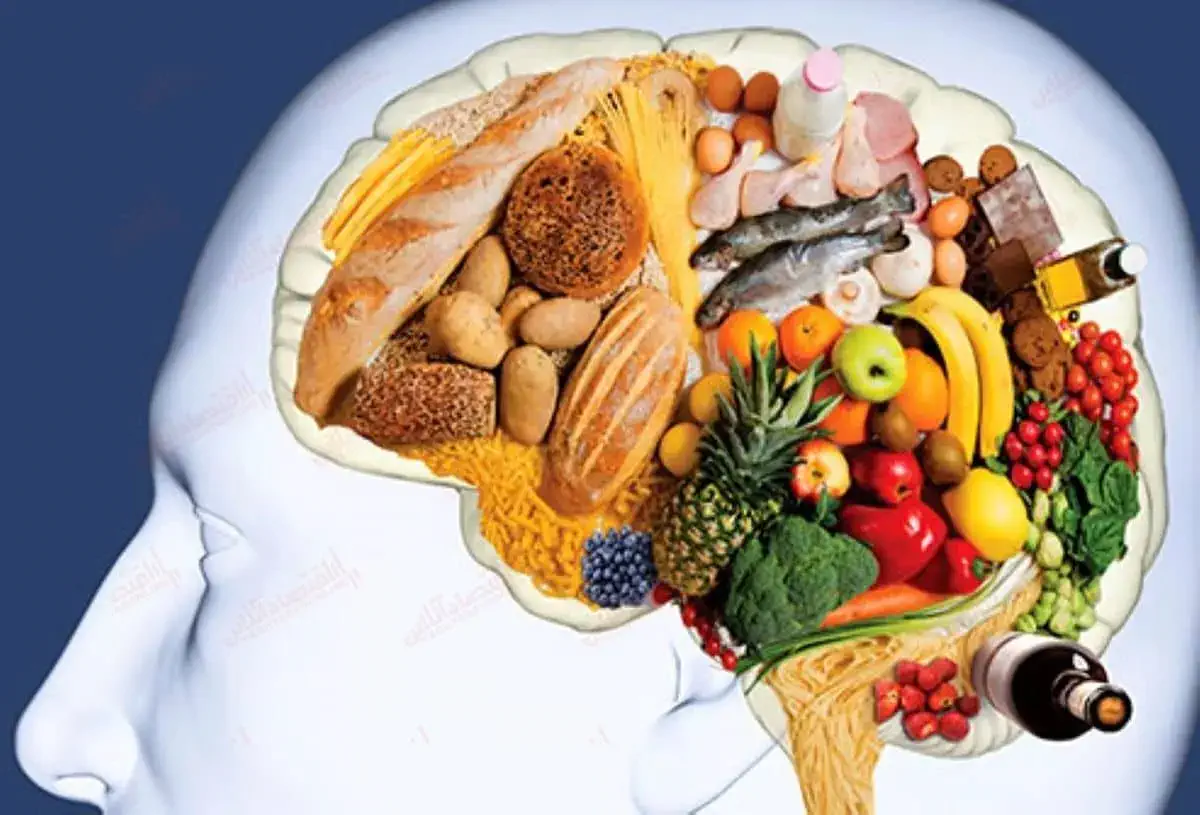
List of the Best Foods for Dementia Patients to Eat
Alzheimer’s and dementia disease is a progressive neurological disorder that causes a gradual decline in cognitive functions and memory. It is the most common cause of dementia and usually occurs in people over 65, although there are also cases of it at an earlier age. Foods for dementia patients can have a significant impact on the mood of people with Alzheimer’s. Food also plays a very important role in brain health and cognitive function. Research shows that a proper diet can help improve memory, concentration and reduce the risk of mental diseases such as Alzheimer’s. A number of foods that are beneficial for improving memory, increasing concentration and improving mood are fatty fish rich in omega-3 fatty acids, fruits and vegetables, nuts and seeds, and foods rich in fiber.
It is also recommended that the consumption of processed foods, refined sugars and foods high in fat and salt be limited for Alzheimer’s patients. To have a diet plan that is appropriate for the patient’s age, disease progression, and other conditions, it is best to consult a specialist or nutritionist. In this article from humanhealthmag, we intend to provide more information about the connection between healthy eating and brain health, a complete list of foods suitable for Alzheimer’s patients, a suggested daily diet chart for these patients, and other important points in this regard.
Why Is a Healthy Diet important for Alzheimer’s Patients?
Alzheimer’s disease has profound effects on the brain, gradually causing memory loss. The disease is associated with structural and chemical changes in the brain that lead to the death of nerve cells and a decrease in brain volume. Foods for dementia patients can play an important role in reducing brain inflammation and improving its overall health. Some foods can help reduce inflammation and protect brain cells due to their anti-inflammatory and antioxidant compounds.
Antioxidants, vitamins, and minerals play a very important role in maintaining the health and function of brain cells. These substances can help protect the brain from oxidative damage, improve cognitive function, and reduce the risk of neurological diseases. Also, consuming easy recipes for seniors with dementia can prevent the progression of the disease.

Best Foods for Dementia Patients
In this section, we introduce some of the foods for dementia patients. Note that diet for Alzheimer’s patients and patients with dementia play a very important role in improving the condition of patients. Foods that are beneficial for patients with dementia include the following:
- Fatty fish: Fatty fish such as salmon, tuna, and sardines are not only delicious, but they are also rich in omega-3 fatty acids, which have very important effects on brain health. Omega-3 has anti-inflammatory properties and can help reduce dementia-related brain abilities and provide a ray of hope for improving the health of these patients.
- Leafy greens: Spinach, kale, and other leafy greens are full of antioxidants, vitamins, and minerals that support brain function. These greens contain nutrients such as folate, vitamin K, and lutein, which are associated with improved cognitive function and reduced risk of dementia.
- Berries: Blueberries, strawberries, and other berries are rich in antioxidants and flavonoids that protect brain cells from dementia damage and improve memory and cognitive function. Studies have shown that a diet rich in berries may help slow the progression of cognitive decline in patients with dementia.
- Nuts and seeds: Almonds, walnuts, flaxseeds, and chia seeds contain healthy fats, certain vitamins, and minerals that improve cognitive function. On the other hand, the omega-3 fatty acids, vitamin E, and antioxidants found in these foods play an effective role in reducing inflammation and improving brain health. According to the benefits of eating walnuts for elderly, consuming such gospels can prevent the progression of the disease.
- Whole grains: Foods like brown rice, quinoa, and oats are rich in sustained energy and essential nutrients for brain health. The slow-release carbohydrates in whole grains play an effective role in stabilizing blood sugar levels, which is essential for maintaining cognitive function throughout the day.
- Lean protein foods: Chicken, turkey, and tofu are excellent sources of protein, which play an effective role in improving muscle health and cognitive function. Protein-rich foods also provide essential amino acids for brain function and the production of neurotransmitters.
- Fruits and Vegetables: Colorful fruits and vegetables like oranges, apples, carrots, and bell peppers are packed with vitamins, minerals, and antioxidants that play a role in reducing inflammation and improving brain health. Regular consumption of a variety of fruits and vegetables means ensuring that patients with dementia are getting all the nutrients they need.
- Foods with Healthy Fats: Avocado, olive, and coconut oil are among the foods that contain healthy fats that support brain function and overall health. Consuming these fats has been shown to have a positive effect on reducing inflammation and improving cognitive function.
- Spicy Foods: Turmeric, cinnamon, and ginger have anti-inflammatory properties that may be beneficial for brain health. Including these herbs and spices in the meals of seniors can help improve the taste of food and promote brain health in patients with dementia.
- Drink plenty of water: Staying hydrated with water and hydrating fluids like herbal teas is a cornerstone of cognitive function and overall health. Dehydration severely affects brain function, so ensuring adequate hydration is essential for dementia patients.

Sample Meal Plan for Dementia Patients
Here is a list of foods for dementia patients that include meals and snacks that are beneficial for improving brain health and reducing inflammation:
| Breakfast | Snack | Lunch | Snack | Dinner | Snack |
| Oatmeal with milk and fresh fruit | A handful of nuts (almonds, walnuts, seeds) | A green leafy salad with olive oil and salmon | Carrots and celery with hummus | Grilled chicken with steamed vegetables and probiotic yogurt | A glass of warm milk with honey |
| Boiled eggs with whole grain bread | Fresh fruit such as apples or oranges or berries | Vegetable soup with beans and lentils | A slice of low-fat cheese with a few olives | Brown rice with vegetables and salmon | A few dates with nuts |
Foods to Avoid for Dementia Patients
Alzheimer’s patients lose their ability to evaluate food as the disease progresses. As a result, you should follow the tips on foods for dementia patients. These tips include:
- Avoid giving them very hot foods.
- Avoid foods that cause constipation.
- Make sure they eat plenty of fiber.
- High-carbohydrate foods are not recommended for patients over 60.
- It is better for them to have more meals with vegetables and fruits.
Tips for Consuming Foods for Dementia Patients
The following basic tips for foods for dementia patients will help to strengthen the person with dementia. These tips include:
- Eat a well-balanced diet that includes a variety of foods. Vegetables, fruits, whole grains, low-fat dairy products, and low-protein foods should be included.
- Limit your intake of foods high in saturated fat and cholesterol. Some fat is essential for health – but not all fats are created equal. Fats that are bad for your heart, such as butter, lard, and fatty meats, should be limited.
- Reduce your intake of refined sugar. Refined sugar, often found in processed foods, is high in calories but lacking in vitamins, minerals, and fiber. You can replace sweets with healthy choices like fruit or fruit juice; but be aware that in the later stages of Alzheimer’s, if appetite loss is a problem, adding sugar to foods may encourage overeating.
- Limit your intake of foods high in sodium and use less salt. Most people consume too much sodium, which can affect blood pressure. Reduce this by using spices or herbs as seasonings instead.
- As the disease progresses, loss of appetite and weight loss may be a concern. In such cases, your doctor may recommend supplements between meals to add calories.
- Staying hydrated may also be a challenge. Encourage yourself to drink fluids through small glasses of water or other fluids throughout the day or foods with a high water content, such as fruit, soups, milkshakes, and smoothies.
How to Feed a Person With Alzheimer’s?
As we said, Alzheimer’s disease is a type of dementia that is accompanied by a gradual decline in memory, cognitive and behavioral abilities. This disease has no definitive cure, but its symptoms can be controlled by following some health and diet tips, as well as knowing foods for dementia patients.

One of the important issues in caring for a person with Alzheimer’s is proper and balanced nutrition and following the tips related to the food of Alzheimer’s patients. Improper nutrition may increase behavioral symptoms and cause weight loss. In order to be able to feed a person with Alzheimer’s, you should pay attention to the following points:
- Feed the patient in a calm and quiet space where there are no distractions in that space. For example, turn off the television, radio, or loud noises of others.
- Remove all extra utensils and dishes from the table and keep only the necessary utensils, and also use simple, unadorned dishes with darker colors. This will help the patient stay focused on the food and avoid confusion.
- Make sure the food is not too hot. The patient may lose their sense of temperature and may be harmed by eating hot food. Test the food yourself before giving it to the patient.
- Offer no more than two types of food at a time and consider the patient’s preference for the food. If the patient has difficulty swallowing, use soft and pureed foods. Avoid dry, hard, sticky, or crushed foods.
- Never skip a meal and try to eat your own food with the patient. This will motivate the patient to eat and not feel alone. You can also ask the patient to help you prepare the food, if possible.
- Be understanding if the patient does not remember that he or she has just eaten. Do not get upset or angry, and try to be patient and kind. If the patient is hungry, offer a light meal or a healthy snack.
Consult a Doctor About Consuming Foods for Dementia Patients
Another point is that consulting a nutritionist is very important to set up a foods for dementia patients program. Because proper nutrition can help improve the quality of life and reduce the symptoms of the disease. A nutritionist can develop a diet plan tailored to the specific needs and conditions of each patient, which includes essential nutrients to improve brain function and reduce inflammation.
Alzheimer’s patients may suffer from nutritional deficiencies due to memory problems and behavioral changes. A nutritionist can help identify and compensate for these deficiencies. Consulting a nutritionist can play an important role in improving the quality of life and brain health of Alzheimer’s patients. These specialists provide patients and their families with the necessary education on healthy food choices and how to prepare nutritious foods.
Concluding Remarks
In this article, we have explained all the necessary points and information about the importance of foods for dementia patients, and we have also introduced a list of foods that are beneficial for brain health and the improvement of this disease. Proper nutrition is very important for Alzheimer’s patients and reduces the symptoms of the disease. Alzheimer’s patients may suffer from nutritional deficiencies due to memory problems and behavioral changes. Proper nutrition can help compensate for these deficiencies. Balanced and targeted consumption of beneficial foods can help improve memory, reduce fatigue, and strengthen cognitive abilities.
Proper nutrition can also help maintain a healthy weight and reduce the risk of chronic diseases such as diabetes and heart disease, which leads to an improvement in the quality of life of Alzheimer’s patients. Therefore, patients and their families are advised to control and improve this disease by making positive changes in their diet. Finally, it is important to note that nutrition alone cannot cure Alzheimer’s disease, but can only slow down the progression of the disease.
Thank you for following this article so far. If you also have information or experience in this field, you can share it with us and other users.

Frequently Asked Questions
What Foods Are Good for Dementia Patients?
Foods such as fatty fish, fruits and vegetables, nuts and seeds, legumes, and olive oil help maintain brain health and improve cognitive function.
Is Sugar Consumption Harmful for Dementia Patients?
Yes, high sugar consumption can lead to inflammation and cognitive problems. It is best to reduce your intake of sugar and processed foods.
What Drinks Are Good for Dementia Patients?
Water, green tea, and herbal teas can be good options. Sugary and caffeinated drinks should be limited.
